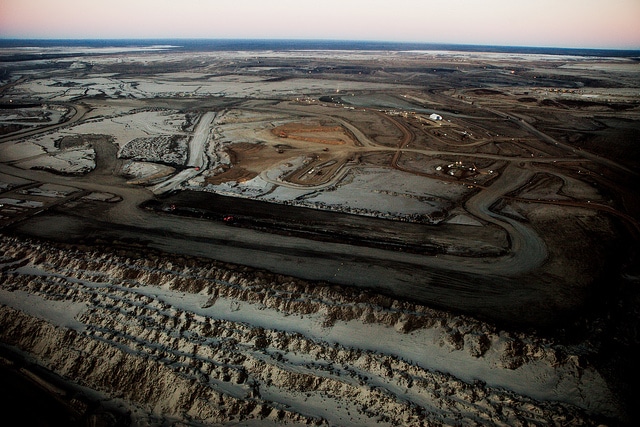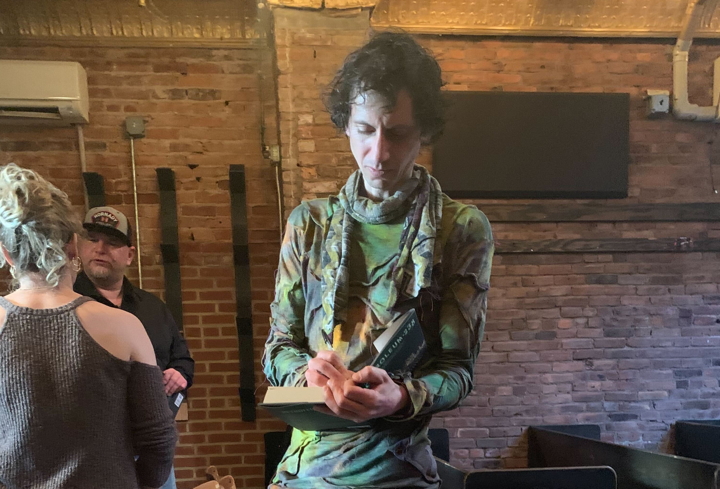Today the Athabasca Chipewyan First Nation (ACFN) will argue in the Alberta Court of Appeal that Shell Canada’s proposed Jackpine Mine expansion is in violation of their Constitutional rights and represents a failure on behalf of the federal government to uphold their legal duty to consult (DTC). The First Nation, which originally made this argument in a joint federal/provincial hearing on October 1, was told the panel did not have jurisdiction to hear constitutional questions.
When the ACFN applied for an adjournment, in that case, their request was denied. In response the First Nation is claiming they have “no other option but to file legal arguments for the protection of their constitutionally protected rights through the Alberta Court of Appeal.”
The government’s refusal to consider the ACFN’s best defense against the megaproject, which will increase Shell’s tar sands bitumen mining capacity in this one project alone by 100,000 barrels per day, appears out of step with the federal government’s own admission that they must accommodate the rights of First Nations when considering industrial projects that entail irreversible impacts.
First Nations rights, especially as defined in the 1982 Constitution and subsequent court decisions, must be accommodated, according to an internal federal discussion paper, released to Greenpeace Canada’s climate and energy campaigner Keith Stewart through access to information legislation.
“Accommodation can vary from: adjusting an activity or process to abandoning a project, to placing terms and conditions on any permits or authorizations,” said the paper, which was presented in a December 2011 meeting in Calgary with the Canadian Energy Pipeline Association, an oil and gas industry lobby group.
In addition the government acknowledged “the duty to consult and accommodate (DTC) is part of a process of fair dealing and reconciliation which flows from…the Constitution Act, 1982, and the Crown’s duty to deal honourably with Aboriginal peoples.”
According to the document “the DTC is designed to prevent irreversible harm to aboriginal interests prior to negotiated settlements and to manage ongoing relationships with treaty groups in a way that upholds the honour of the Crown.”
In consideration of the Jackpine Mine expansion, the federal government failed to adequately consult the Athabasca Chipewyan First Nation or to consider the irreversible impacts that might result from the enormity of the project. The loss of territory, violation of a watershed, or destruction of animal habitat can each be considered a violation of constitutionally protected Aboriginal rights if the land, water or species are considered culturally significant or essential to the traditional practices of the tribe.
But when the ACFN brought these concerns to the hearing, they were told such matters were beyond the jurisdiction of the panel.
“We must take our case to the Alberta Court of Appeal,” stated Chief Allan Adam. “The impacts of this project will have on our lands and rights is not fully understood or adequately addressed by the Crown. At this point we have exhausted all avenues to have the adequacy of Crown consultation addressed by the Panel and we have been left with no other choice but to take this to the courts.”
The AFCN is concerned “irreparable harm” may occur if the hearing proceeds without considering the constitutional questions.
“The government has made it incredibly difficult for us to access avenues to adequately protect our lands and rights,” said Adam. “We are very concerned that Alberta has delegated consultation to the proponent Shell and we want the adequacy of Crown consultation assessed.”
Greenpeace Canada’s Keith Stewart says the newly-released internal document demonstrates the seriousness of the Crown’s legal obligation to First Nations. Projects like the Enbridge Northern Gateway Pipeline could be rejected by the federal government on the basis that more than 100 First Nations cite concerns ‘irreparable’ damage may violate their rights.
Referring to sweeping changes made to environmental assessment and review legislation in the Omnibus budget Bill C-38, Stewart commented, “this government can rewrite environmental laws but it can’t rewrite the constitution.”
The ACFN will make their appeal in an Edmonton court today, while a September 2011 claim the First Nation made against Shell for failures to uphold agreements in 2003 and 2006 remains in legal limbo, with no date set for hearings. In this 2011 case the ACFN argues Shell did not adequately mitigate the impacts of pre-existing projects.
The First Nation hopes today’s appeal will result in an independent review of the Crown’s consultation.
Photo Credit: Kris Krug
Subscribe to our newsletter
Stay up to date with DeSmog news and alerts






